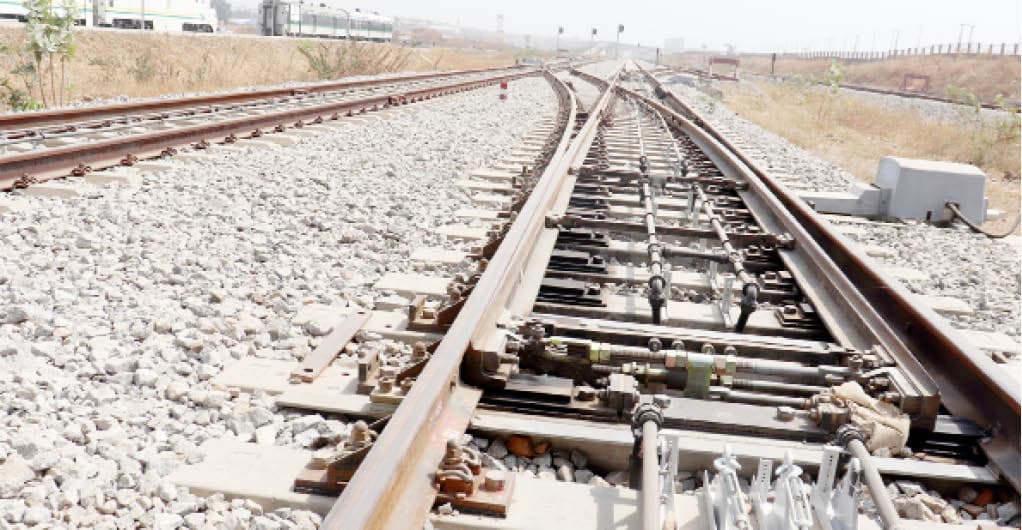Rescue the Abuja light rail project
Late last month, the Daily Trust on Sunday reported that facilities of the multi-billion naira Abuja Rail Mass Transit, also known as Abuja Light Rail, are rotting away. The metro rail, which was commissioned by President Muhammadu Buhari on July 12, 2018 and opened for passengers the following week has since been abandoned, paving the […]

Late last month, the Daily Trust on Sunday reported that facilities of the multi-billion naira Abuja Rail Mass Transit, also known as Abuja Light Rail, are rotting away. The metro rail, which was commissioned by President Muhammadu Buhari on July 12, 2018 and opened for passengers the following week has since been abandoned, paving the way for vandals to feast on the facilities. The project was conceived to solve the perennial transportation problem in the Federal Capital Territory (FCT) and its adjoining satellite cities. However, when it opened for business in 2018, only the Abuja Metro Station in the Central Business District to the airport was put to use, with an intermediate station at Idu.
The initial project was to cover a total distance of 290 kilometres and was to be executed in six phases or lots. The first phase, lots 1 and 3, was awarded in 2007 at $840m for four years by the President Obasanjo government, with Nasir El-Rufai as FCT Minister. Out of this amount, 60 per cent was to be funded with loans from the Exim Bank of China. But only lots 1 and 3 were completed and commissioned. The 42.5 km (26.4 mi) Lot 1 has two lines and 12 stations connecting the Abuja City Centre with the Nnamdi Azikiwe International Airport via the Lagos–Kano standard gauge railway at Idu. It has stations at Abuja Metro, Stadium, Kukwaba 1, Kukwaba 11, Wupa, Idu, Bassanjiwa and the airport.
The Blue Line (Lot 3) has been completed but not been put to use. It is to pass through Idu to Kubwa, with stations in Idu, Gwagwa, Deidei, Kagini and Gbazango. Lot 2 starts from Gwagwa via Transportation Centre (Metro Station) to Nyanya/Karu; Lot 4 is from Kuje to Karshi with the remaining legs of the transit-way line 2. Lot 5 is expected to be from Kubwa via Bwari to Suleja and Lot 6 from the airport via Kuje and Gwagwalada to Dobi. None of these has worked, and even the Lot 1 train service soon folded up without explanation, thus adding no value to the citizens who live in Abuja, perhaps the only modern city and capital territory in the world without a functional mass transit network.
However, while the facilities of the project are being vandalised or left to rot, the government commenced repayment of the $500 million concessionary loan in March 2020. The loan agreement was signed on November 7, 2012 by Nigeria and the China EXIM Bank at 2.50 per cent interest rate, with a grace period of seven years and a maturity date of September 21, 2032. According to the Debt Management Office (DMO), as at December 31, 2021, $76.92m had been repaid on the principal, while $78.23m had been paid on interest. The outstanding amount is $423.08m. We think it is inconceivable that a project on which government is repaying debt is left to rot away.
It is no good news that Africa’s megacities lack modern infrastructure and the demand for roads, metros, bus systems and bridges far outweighs the investment. Until relatively recently, only two African cities had subway systems, both of them in North Africa, namely, Cairo in Egypt, which opened in 1990, and Algiers in Algeria. But Addis Ababa, Ethiopia’s capital, was the first nation in sub-Saharan Africa to open a light rail metro system in 2015 for its over four million residents. The $475 million system runs through the capital’s main industrial area on its southern fringe, through the trading district of Merkato, to the historic centre of Piazza. An east-west line skirts the African Union’s headquarters, soars past the main government district and out to modern housing developments. This year, Angola intends to launch a surface metro for its capital, Luanda.
We, therefore, call on the FCT administration and indeed the federal government to declare an emergency in the FCT public transport sector by rescuing the Abuja Light Rail project. We also call on the National Assembly, which has direct oversight of the FCT administration, to probe the project and ensure that any erring officials are appropriately sanctioned. It is simply criminal for Nigerian taxpayers to be paying the debt on a project they do not enjoy; a project that has not even got off the ground. The era of public officials getting away with bad calls that kill the purpose of public utilities should be over.
Above all, the project must be prioritised again and be implemented in full across the entire six phases. The FCT is in dire need of an efficient mass transit system, without which the business of government, and for that matter, the business of business, cannot go smoothly. This rail project will go a long way in ensuring this. It must not, therefore, be allowed to end up as just another well-conceived but poorly implemented project. Nigeria cannot continue to be the graveyard of the very projects designed to grow and develop it.
